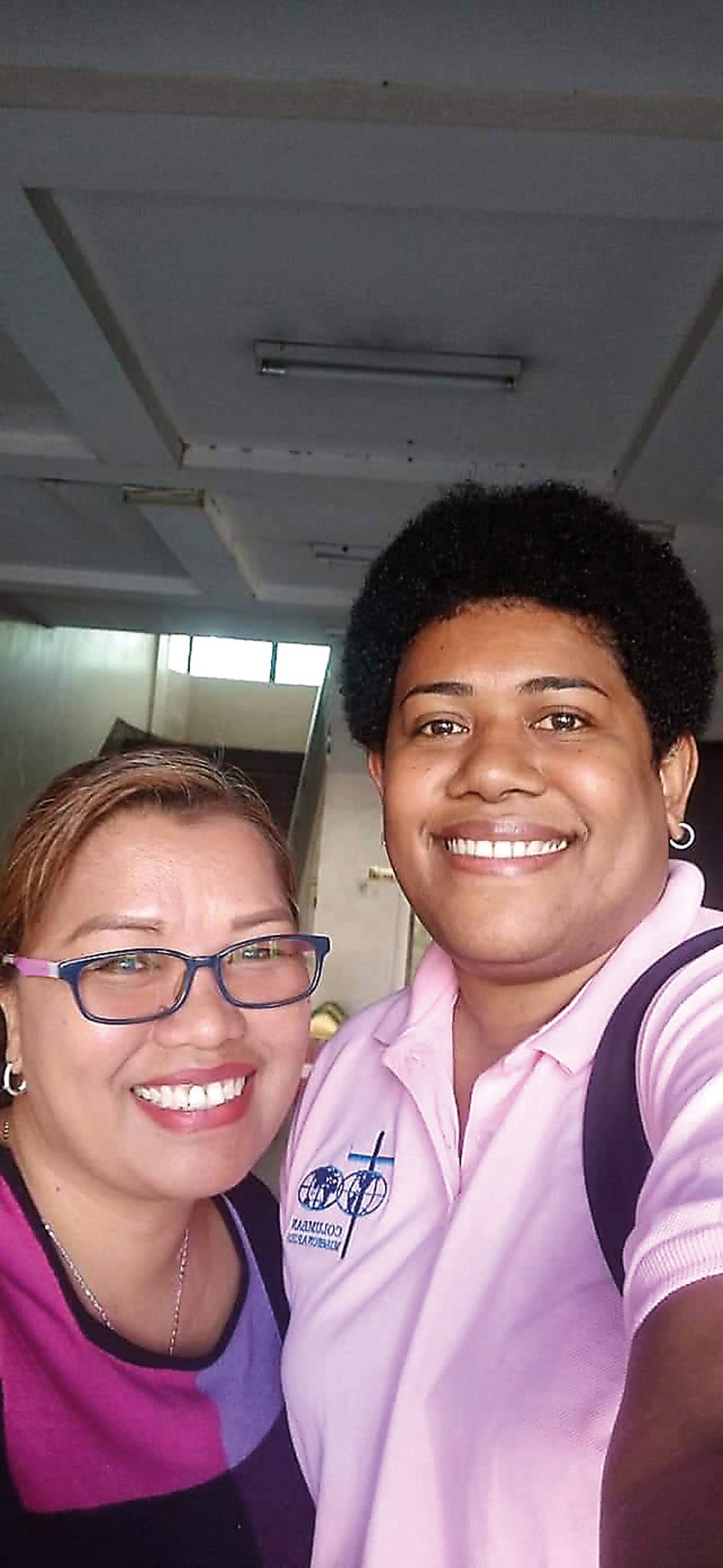After spending several years in leadership and administration work, I was glad to return once again to full-time pastoral work in Deaf Ministry in the Archdiocese of Cagayan de Oro, Mindanao, Philippines. This is where I was assigned in my first term as a lay missionary, so I am pretty familiar with the place. It has provided many good memories and so it is good to be back again.
In the past I was assigned specifically to Holy Rosary Parish which was managed by the Columbans. They have a specific ministry for the deaf in the parish which I became interested in. Since then, my passion and love for working with the deaf has grown. I was lucky to have a great sign language teacher, Vilma Arante who has always been very dedicated and committed to her work in the service of deaf people.

Upon returning to Cagayan de Oro, I was once more assigned to work with Vilma. She is now Coordinator of the Deaf Ministry within the Archdiocese of Cagayan de Oro. We have known each other for many years and her passion and commitment to the marginalised despite all the challenges, and the ups and downs, still amazes me. Vilma is always thinking of the deaf, teaching them about saving their money for rainy days and how to take care of themselves.
There is an expectation in the Archdiocese that Catholic members of the deaf community will be involved in Church activities and that requires us to constantly reflect on how we can better help them. Vilma works with young deaf children who are in school, as well as the youth and those who are older and have families of their own. Most of the older members of the deaf community work as massage therapists, so every six months they gather at the Columban House in Patag to make their massage oils. This is their livelihood which helps support them financially with their day to day expenses. Vilma also encourages them to try and save some of their income in case of emergencies or other needs.
Catechism is taught to the young deaf children in SPED schools. Some parents of deaf children show their support in participating in the activities of the deaf. The young adults who are looking for work are sometimes sent to livelihood training programmes like candle making, while some join the Life Project for Youth. Every Sunday there is signed Mass in two parishes.
The government doesn’t provide much support to the less fortunate. However, there are people who dedicate their lives to helping the marginalised, and Vilma is one of them. Observing and seeing how committed she is inspired me to work with her. I asked Vilma, what keeps her going and why is she still involved with the deaf despite all the challenges? Her reply really touched me. She said she wants to help the deaf since there are not many interpreters in the city that are able to use sign language to interpret for the deaf. For her, it’s not about money – it’s about service from the heart. Although she does not receive much, she has felt the graces of God in her life in this service. She is always happy being with the deaf community. It is life-giving for her.
Working with the deaf is indeed life-giving. I have learned throughout the years, that deaf people are also on their own spiritual journey in life. In wanting to make our Church more inclusive we need to welcome the marginalised and support them and provide resources that will help them.
Pope Francis in ‘The Joy of the Gospel’ wrote, “Pastoral ministry in a missionary key seeks to abandon the complacent attitude that says: ‘we have always done it this way’.” He invites everyone to be bold and creative in this task of rethinking the goals, structures, style and methods of evangelisation in their respective communities. There is a need to rethink our goals, structures, style and methods of evangelisation so as to become a more inclusive Church and provide resources, and train lay people to help build up a better Church.
“Pastoral ministry in a missionary key seeks to abandon the complacent attitude that says: ‘we have always done it this way’”

